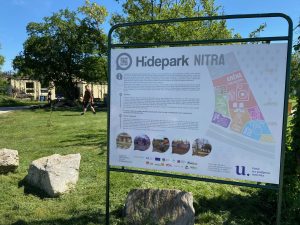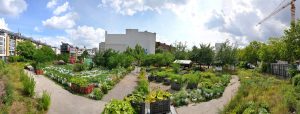
Hidepark is a grassroots open-space community and cultural centre established on a former illegal landfill in the city of Nitra, Slovakia. It has grown into a hub for cultural, ecological, and social activities, serving as a safe and inclusive space for diverse vulnerable groups within the city.

Starting from an urban gardening project, the experience of Prinzessinnengarten extended to a wide range of innovative practices, political stances and networking activities fostering a DIY integrated approach. Since 2020, the gardens occupy two distinct areas, both organized on principles of self-sufficiency, food-independence and social inclusivity: the original site located in Moritzplatz (Berlin-Kreuztberg) and the recent acquisition of San Jacobi cemetery (Berlin-Neukölln). The Prinzessinnengarten project promotes gardening as a practice of community building and social emancipation from urban neo-liberal dynamics, while also offering its visitors and members a wide range of cultural and educational activities aimed at sharing different forms of knowledge and skills and at raising consciousness on current ecological issues and social challenges.

WHERE AND WHEN? Mildmay, Islington, London, UK. From 2018. Involvement in the Comensi project. WHAT’S GOING ON? Mildmay has recently become a preferential target for real estate investment, and it has seen a rapid increase in the number of affluent peope decidig to move in the ward. The new inbalance between housing supply and demand has broght […]